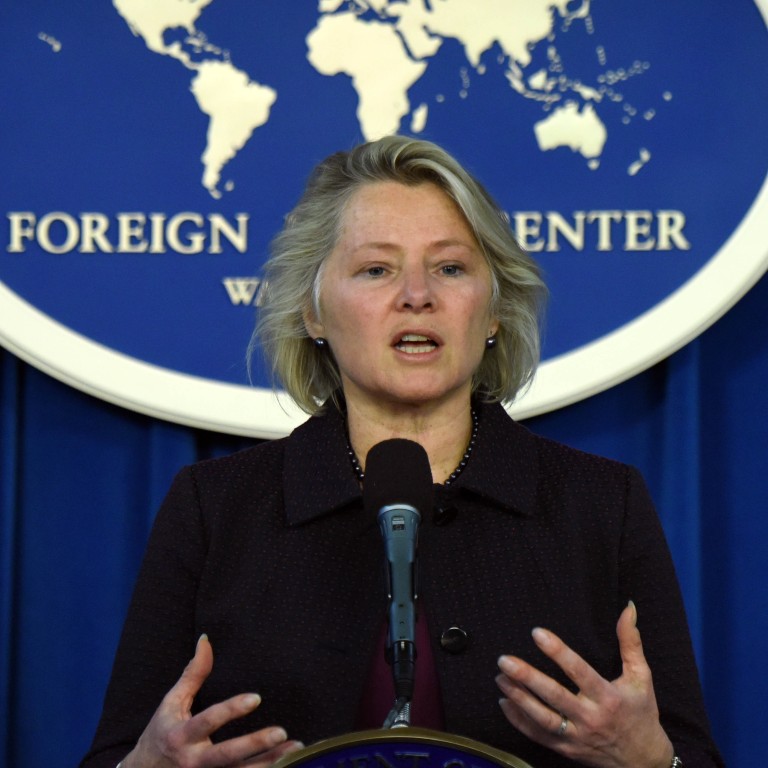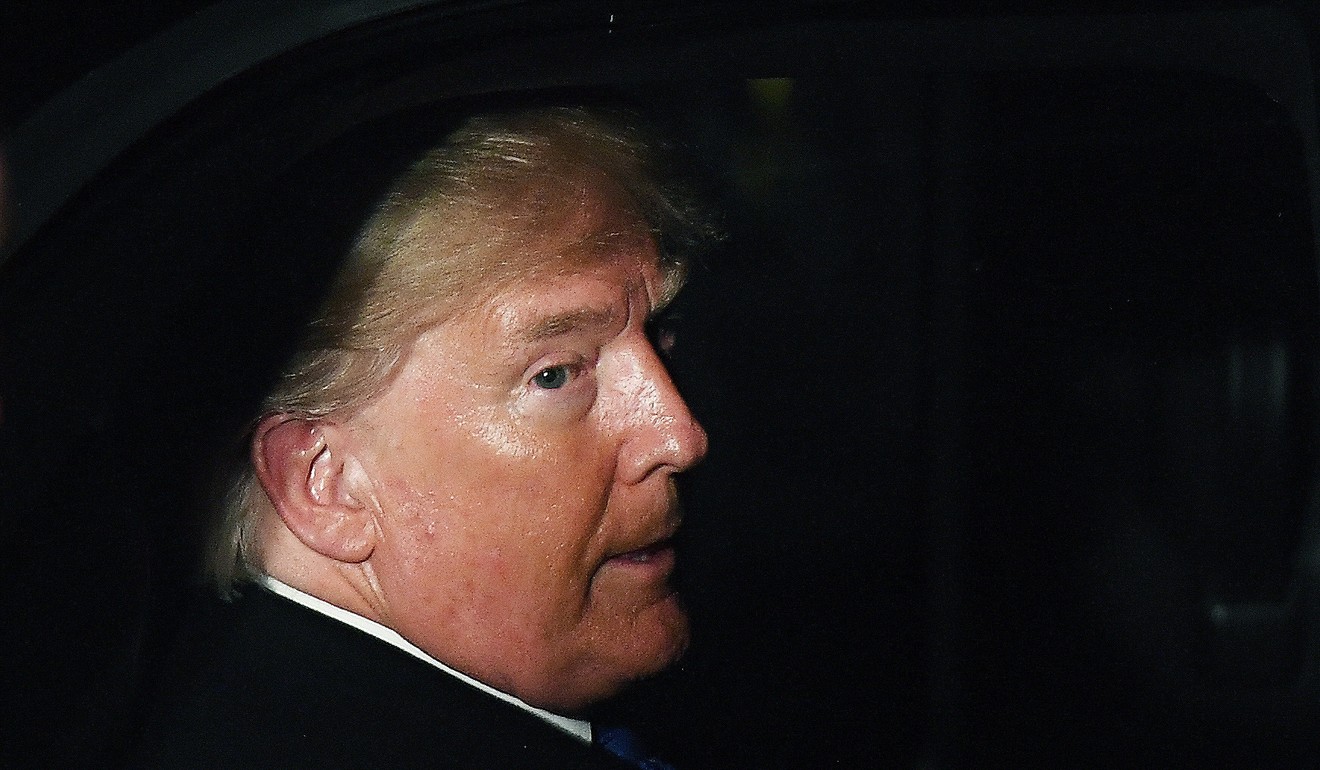
Former US envoy says Chinese officials anticipate ‘partial decoupling’ of the nations’ economies
- Susan Thornton, former Trump administration expert on Asia, discusses her recent conversations with Chinese
- ‘It seemed very much that the trade-negotiation moment may have passed,’ she says
China’s government assumes that the US-China trade war may drag on indefinitely and that the stand-off may lead to a “partial decoupling” of the two economies, a former high-ranking US State Department official said after returning from Beijing.
“We met with the Ministry of Foreign Affairs, the central party … and people at the National People's Congress in [China]. They were all pessimistic in the short to medium term about US-China relations,” Susan Thornton, a former acting assistant secretary of state for East Asian and Pacific Affairs, said.
“Almost all of them expect things to get worse.”
Thornton travelled to Beijing and Shanghai as part of a fact-finding trip for the National Committee of American Foreign Policy (NCAFP), an American non-profit organisation dedicated to the resolution of conflicts that threaten United States interests.
“It seemed very much that the trade-negotiation moment may have passed. At least that's the sense I got from the Chinese.”

Thornton had been the longest-serving senior envoy for Asia in the administration of US President Donald Trump. A formal nomination to become assistant secretary of state failed because of opposition in the Senate from China hawks such as Marco Rubio, Republican of Florida.
Since leaving the government in August 2018, she has taken aim at Trump’s overall policy of confrontation with China in areas ranging from technology to trade.
Congressional Hong Kong bill will ‘punish the wrong people’: ex-Trump envoy
Speaking at the Harvard Club in New York on Tuesday evening, Thornton said that the pessimism she found in Beijing had been echoed in Washington recently as well.
“I think we heard from President Trump actually echoing that … so we sort of got that line first in Beijing and now it's coming back around here, apparently. So that seems to indicate that trade negotiations are not going as well as advertised,” said Thornton, who, among other assignments, now runs projects for NCAFP on Asia-Pacific security.
US President Donald Trump said on Tuesday that the trade deal might have to wait until after the 2020 US presidential election.
“I have no deadline, no,” Trump told reporters near London, ahead of his meetings with Nato leaders. “In some ways, I like the idea of waiting until after the election for the China deal. But they want to make a deal now, and we’ll see whether or not the deal’s going to be right.”
Thornton said that Beijing was now paying attention to the “partial decoupling” of the two biggest economies in the world.
“[The Chinese] mentioned that they did notice that a couple of scholars have been writing about the space between having a convergence … and the complete decoupling,” Thornton said, adding that Beijing’s interest seems now to be finding that space.
“So they seem to be wanting to be writing off the idea that there could continue to be sort of integration in a globalised economy and moving into some partial decoupling. And that's what they were sort of focusing their attention … the partial decoupling.”
Trump and Chinese President Xi Jinping had been expected to meet after the Asia-Pacific Economic Cooperation summit in Santiago, Chile, last month to sign a “phase one” trade deal, which would lead to greater purchases by China of US agricultural goods and provide greater intellectual property protections for American businesses in China.
But the deal was never realised. The Chilean government cancelled the Apec meeting because of domestic unrest and the tension between China and the US has elevated again over Hong Kong and Xinjiang issues.
China protests as US House passes Uygur bill demanding sanctions
“[The Chinese] were very unhappy about various labels that are being thrown at them … They were very disturbed by all the talk of a new cold war and the talk of decoupling of the economies,” Thornton said.
“But they said, almost again uniformly, that they have confidence that US-China relations has its own inherent logic and that over time things would come back around.”
Meanwhile, she said, officials in Beijing seemed to want to wait out daily disruptions and “keep things on a fairly even keel and not react too reflexively” to criticism from the US.

